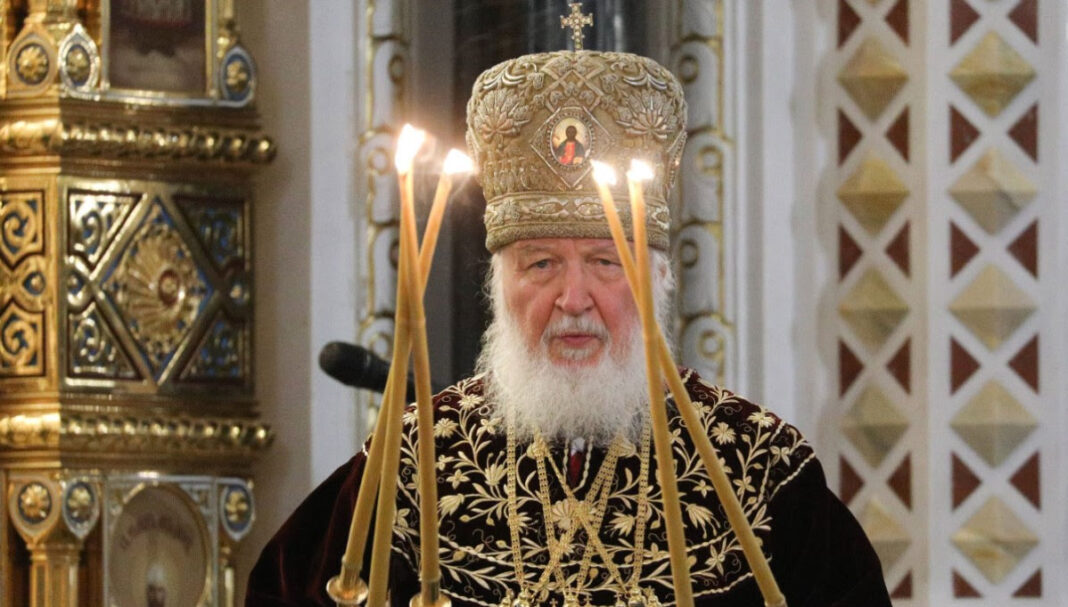By Brendan Cole
The declaration came during a congress of the World Russian People’s Council in which religious, political and cultural figures in the country met at the site of Moscow’s Cathedral of Christ the Savior, a focal point for the Orthodox faith in Russia.
The head of the Russian Orthodox Church, Patriarch Kirill, also heads the council and is an ally of Putin. He has been criticized for providing a religious justification for the war and failing to unequivocally condemn the killing of people in Ukraine.
In February 2022, Patriarch Kirill said that Ukraine and Belarus were part of “Russian lands” and called the Ukrainians who were defending themselves against Russian aggression as “forces of evil,” pitching the war as a battle for the future of Christianity.
“From a spiritual and moral point of view, the special military operation is a Holy War, in which Russia and its people, are defending the single spiritual space of Holy Russia,” the document released on Wednesday said under the heading “special military operation,” which is the official Kremlin term for the invasion.
It went on to claim that the war had the goal of “protecting the world from the onslaught of globalism and the victory of the West, which has fallen into Satanism.”
Following the war, “the entire territory of modern Ukraine should enter the zone of Russia’s exclusive influence,” it said.
“The possibility of the existence of a Russophobic political regime hostile to Russia and its people on this territory, as well as a political regime controlled from an external center hostile to Russia, should be completely excluded,” it added.
Orthodox church representatives globally, such as the U.S.-based Orthodox Public Affairs Committee (OPAC), have condemned the war. After the start of Putin‘s invasion on February 24, 2022, the Ukrainian Orthodox Church (UOC) cut ties with the Russian Orthodox Church.
When contacted for comment the UOC referred Newsweek to its media statement in which it said it “dissociates herself from, categorically rejects, and condemns the ideas set out in this document.”
“The assertion that the so-called ‘special military operation’ is a ‘Holy War’ contradicts the basic principles of Christian morality, especially in the light of the armed aggression with the use of violence.
“From the point of view of the Gospel, military actions cannot be justified as ‘holy’, nor can such assertions be made by people who call themselves clerics,” the UOC statement added.
Willy Fautré, who heads the group Human Rights Without Frontiers (HRWF), told Newsweek that Patriarch Kirill “might have been the only person who had the power to stop President Putin in his war on Ukraine and make history as a peacemaker.”
But the patriarch’s document shows he would go down in history “as an accomplice to war crimes and as the gravedigger of the Russian Orthodox Church.”
Newsweek has contacted the Ukrainian Foreign Ministry for comment.
This month, the head of the Ukrainian Greek Catholic Church, Sviatoslav Shevchuk, told Newsweek that where Russia has arrived in Ukraine, “they exterminate all other religions besides the well-controlled and weaponized Russian Orthodox Church.”
“For Russian occupiers, the weaponization of religion is something new, is a neologism,” Shevchuk said. “It is why the Ukrainian government and Ukraine’s religious society is forced to find different ways to protect ourselves from the weaponization of religion.”
The church he heads has full communion with the Vatican and is the second largest in the Catholic faith after the Latin Church. He visited Washington, D.C., this month to describe to U.S. lawmakers, who are weighing the provision of further aid to Kyiv, the extent of destruction of religious buildings caused by the war.
The Kyiv-based Institute for Religious Freedom said in February 2023 that the Russian military had destroyed, damaged or looted at least 494 religious buildings, with the figure estimated to be far higher today.
“That is also a challenge for my church, not to become militant,” Shevchuk said, adding that the aim is “not to fall to the same temptation the Russian Orthodox Church fell into and become an instrument of hatred.”
Update 03/30/24, 1 p.m. ET: This article has been updated with comment from Willy Fautré and a statement from the Ukrainian Orthodox Church.



